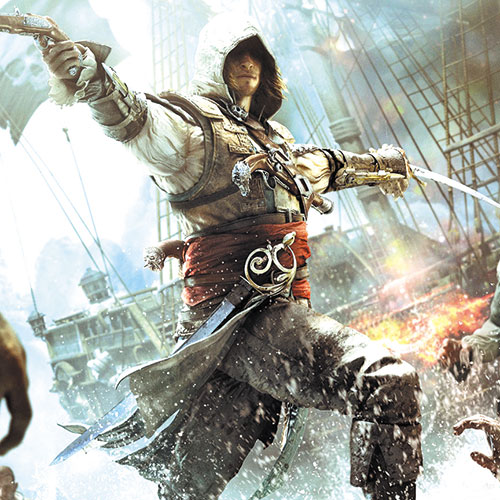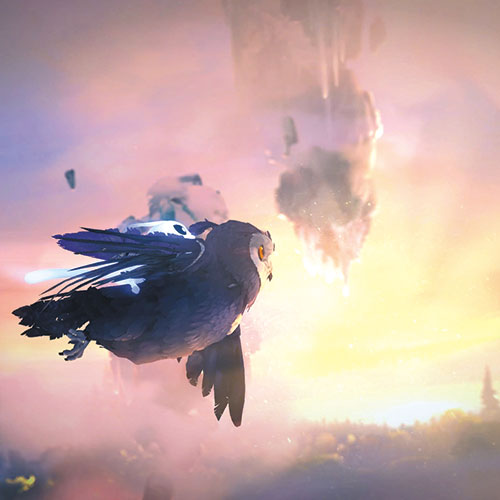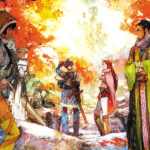With its rich storyline, ‘Black Flag’ turns out to be a real treasure

By CHRIS CAMPBELL | Scripps Howard News Service
Assassin’s Creed IV: Black Flag
Platforms: PlayStation 3, Xbox 360
Genre: Action
Publisher: Ubisoft
ESRB Rating: M, for Mature
Grade: 4 stars (out of 5)
When hitting the open seas in large vessels was introduced in “Assassin’s Creed III,” it was a welcome diversion from the normal activities on land. Series veterans had grown accustomed to sneaking around rooftops, quietly assassinating high-ranking officials and generally being a nuisance to the Templars and fomenting revolution.
Now the tide has turned (bad pun intended) and the focus in “AC IV” stays primarily on the water. Diversions take you upon land to raid forts, discover buried treasure and continue the grand pirate tradition of making chaos, all while collecting a handsome bounty. The time you spend on land may actually take longer by count of the clock, but you will relish the seafaring portions more since they help tie together the story and missions in a way not experienced in previous franchise games.
Keeping the tradition of “Assassin’s Creed,” the story is split between the future and the past. After (spoiler) Desmond dies in the future at the conclusion of “AC III,” his consciousness goes to a cloud-computing system owned by Abstergo, the corporate front for the Templars. This shift allows us to go back in time and take command of a new character, Edward Kenway, a British businessman-turned-pirate (who, for continuity’s sake, becomes the grandfather of the lead character in “AC III”).
Kenway has no allegiance to either the Templars or the Assassins, which in a pirate-themed game makes perfect sense. Instead, you travel the seas taking on contracts and plundering at your leisure. A primary task is building up your ship into something that captains come to fear.
On-land combat and missions play out as you expect. Scaling structures, leaping out of shadows and hiding spots to eliminate threats, hidden blades and gunfire — everything you’ve played before repeats itself, but here in more lavish settings. Swampy jungles, upstart island communities, military forts and more await your quiet feet and quick wits.
You learn that, sometimes, boarding and capturing a ship or not burning a village to the ground offers greater rewards in terms of money and supplies — crucial items to keeping your boat in top shape and allowing you to build a crew of mates. It’s refreshing to have some strategy built in, unlike in other games where “question nothing, destroy everything” remains dominant.
The online multiplayer returns with familiar modes from previous iterations, so you’re out of luck if you were hoping for competitive naval battles. Considering the push for new adventures in “Black Flag,” it certainly feels like the multiplayer was tacked on as an afterthought. This doesn’t make it any less fun, just a missed opportunity.
With a rich story that feels more tied to the gameplay rather than a means to connect missions together, and featuring a highly diverse assortment of locations and activities, “Black Flag” certainly plays and feels more expansive than any previous game in the series.
Instead of over-the-top, Johnny Depp-inspired caricatures, you get a more human experience, and this elevates the plot rather than mocks it.
Some argued that the American Revolution theme of the last game would mark the franchise’s pinnacle. Perhaps that’s the case. But, at the very least, Ubisoft shows in “Black Flag” that there are still plenty of intriguing stories to tell.











